32+ SAMPLE Research Study Plan
-
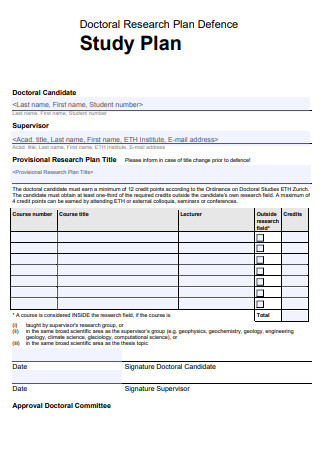
Research Study Plan
download now -
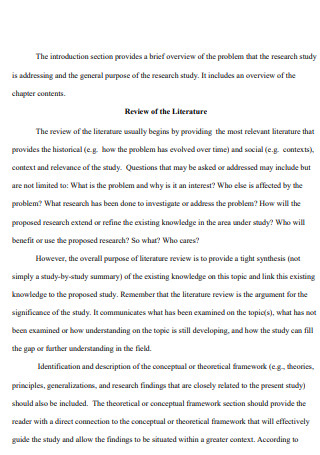
Quantitative Research Study Plan
download now -
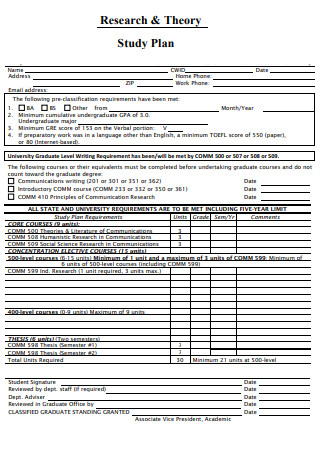
Research And Theory Study Plan
download now -
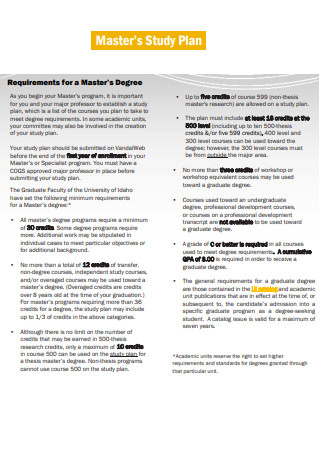
Master’s Research Study Plan
download now -
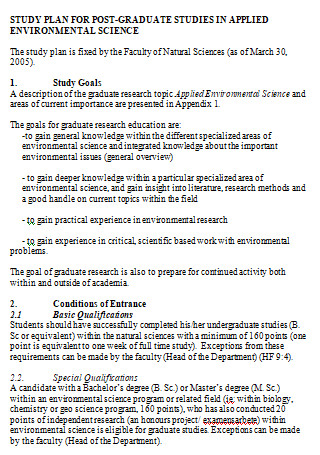
Thesis Research Study Plan Form
download now -
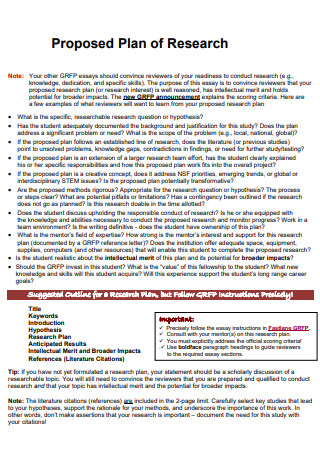
Research Study Proposed Plan
download now -
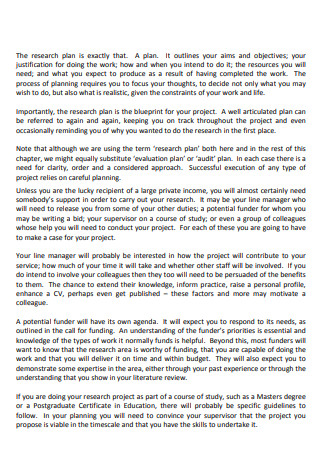
Educational Research Study Plan
download now -
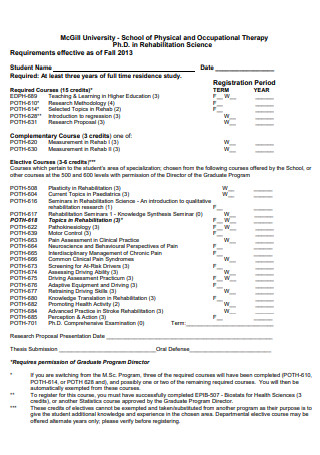
Research Study Plan Form
download now -
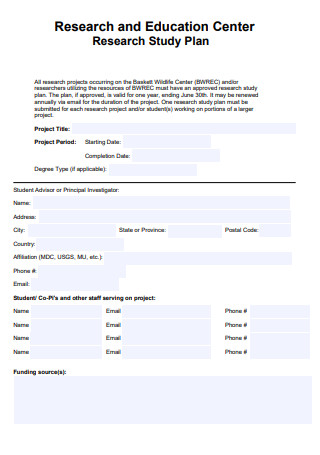
Research and Education Center Study Plan
download now -
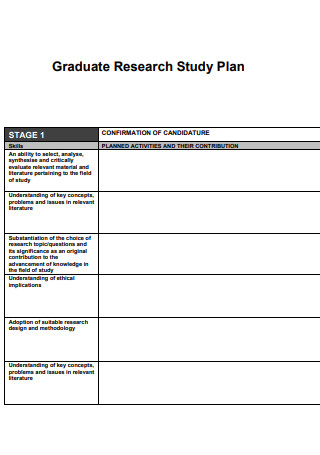
Graduate Research Study Plan
download now -
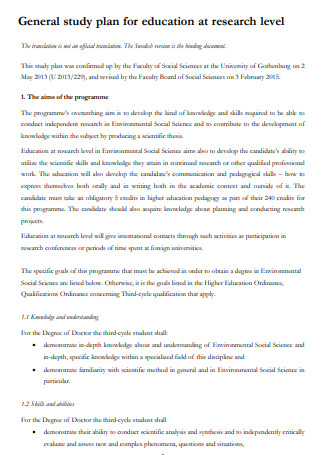
General Research Study Plan
download now -
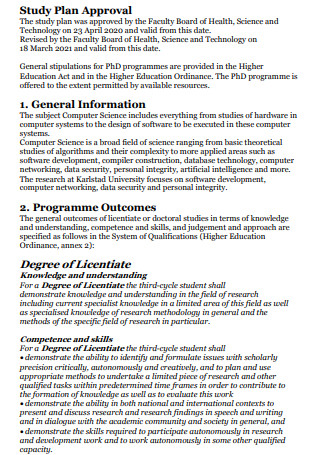
Study Plan for Doctoral Studies
download now -
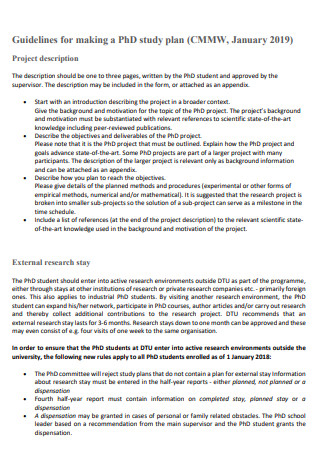
External Research Study Plan
download now -
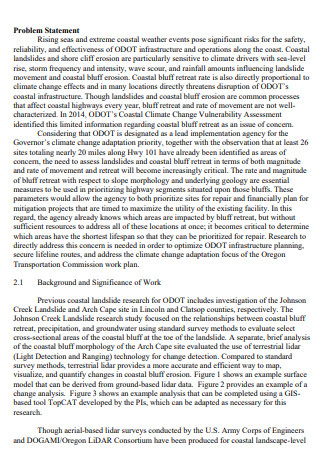
Research Project Study Plan
download now -

Online Graduate Research Study Plan
download now -
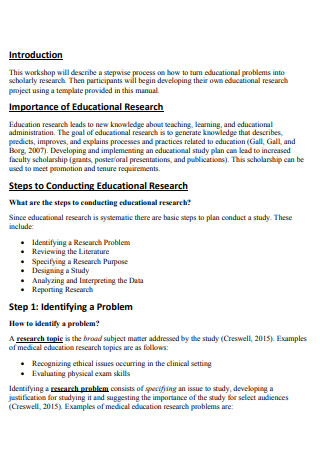
Steps for Educational Research Study Plan
download now -
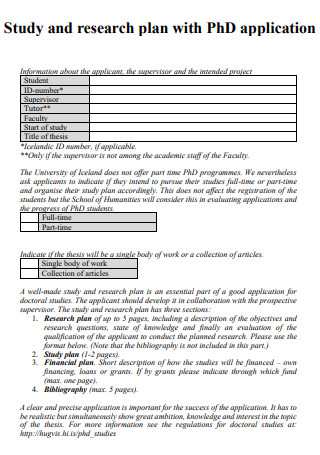
Research Study Plan with PhD
download now -
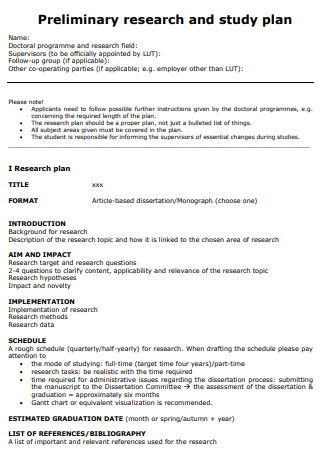
Preliminary Research Study Plan
download now -
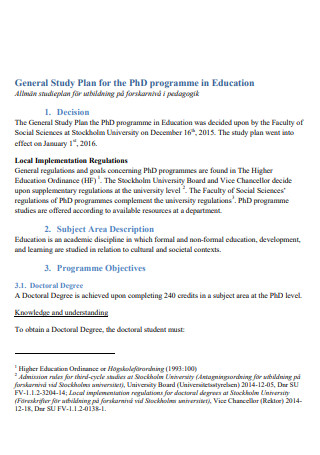
General Study Plan for the PhD
download now -
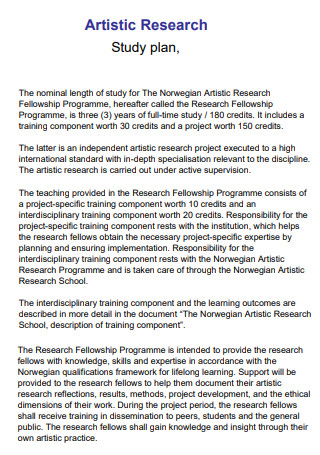
Artistic Research Study Plan
download now -

Final Research Study Plan
download now -
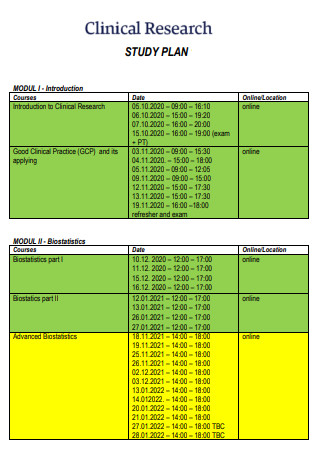
Clinical Research Study Plan
download now -
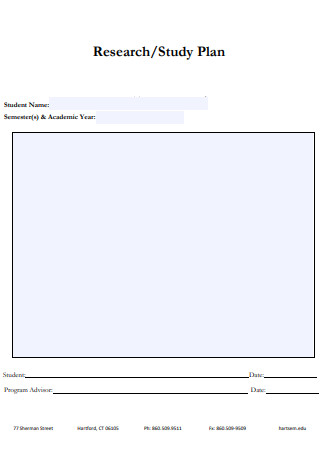
Sample Research Study Plan
download now -
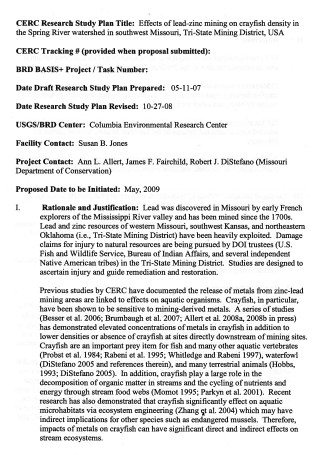
Draft Research Study Plan
download now -
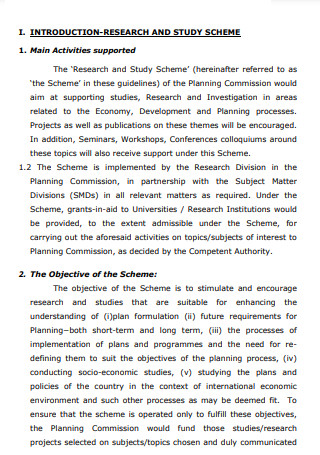
Research Study Scheme Plan
download now -
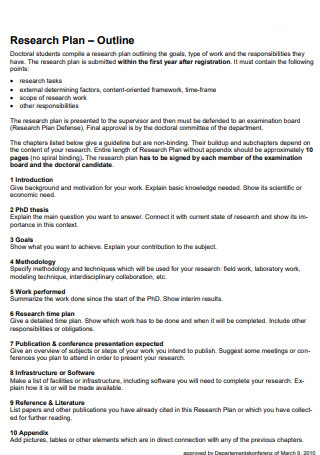
Research Study Plan Outline
download now -
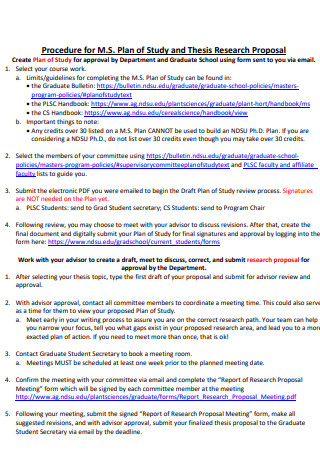
Thesis Research Study Plan
download now -
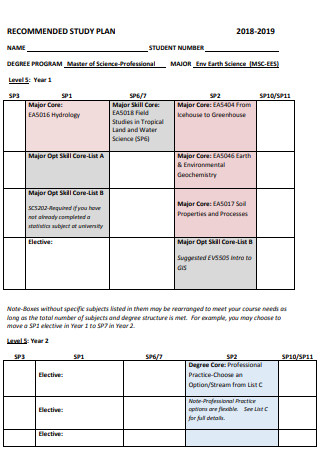
Simple Research Study Plan
download now -
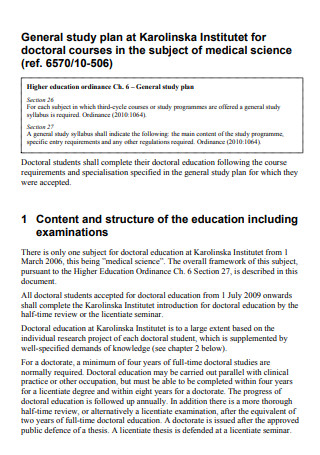
Medical Research Study Plan
download now -
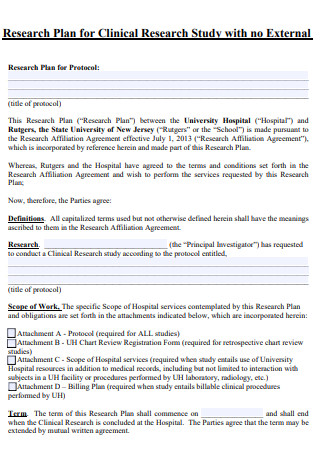
Clinical Research Study Plan Protocol
download now -
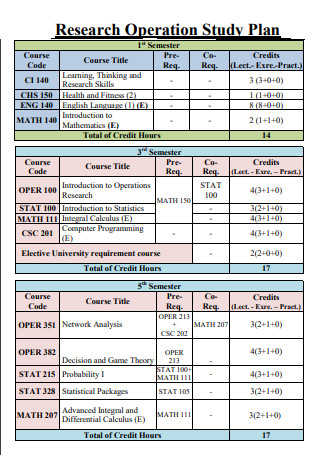
Research Operation Study Plan
download now -
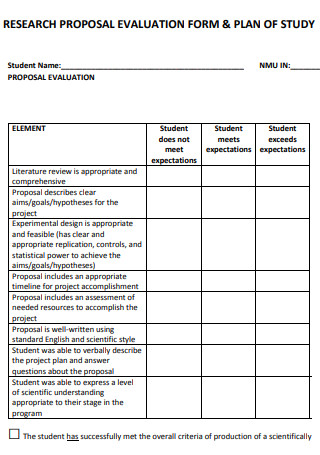
Research Study Plan And Evaluation Proposal
download now -
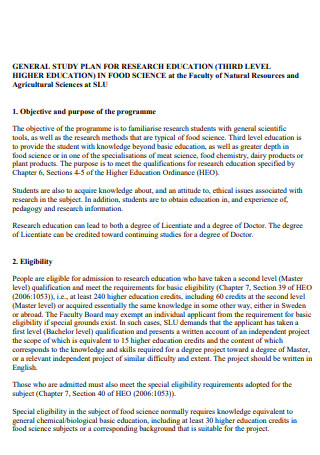
Food Science Research Study Plan
download now
FREE Research Study Plan s to Download
32+ SAMPLE Research Study Plan
What is a Research Study Plan?
Different Types of Research Study Plans
Basic Components of a Research Study Plan
How to Write a Research Study Plan
FAQs
What are the benefits of a research study plan?
What are the key components of a research study plan?
What are some examples of research study plans?
How to manage and monitor a research study plan?
What is a Research Study Plan?
A research study plan is a short and comprehensive written document which is commonly used for the successful development of a particular clinical trial, research project, thesis, PhD plan, doctoral degree plan or other outputs of in-depth analysis and exploration. It also fully illustrates useful explanations of contemporary ideas and unique concepts on a certain research project or study in a well-organized manner. It is a planning tool with the aim of guiding various individuals and professionals such as college students, graduate students, educators, science researchers, medical practitioners, and many others especially when it comes to creating synergy with their peers and other colleagues. to facilitate systematic planning when reaching further and success. Also, it is crucial to be included in one’s overall research and development plan.
Based on a time management statistical report, 87% of students could achieve better grades if they had better time management skills as 50% of students said they don’t make use of one single system to organize their lecture notes, contacts, assignments, and research projects. Each one of us needs to use effective management and planning tools like a research study plan to formulate logical decisions and to ensure accuracy, economy and operational efficiency. Thus, all kinds of college and university students and working professionals like academic researchers, medical researchers, biological researchers, project managers, team supervisors, teachers, clinical professionals, and business strategists should effectively create a compelling and coordinated research study plan.
Different Types of Research Study Plans
Brian Tracy said: “All successful people, men and women are big dreamers. They imagine what their future could be, ideal in every respect, and then they work every day toward their distant vision, that goal or purpose.” Envision your desired outcomes in your research study by creating systematic plans carefully and thoroughly. Also, you need to have a clear understanding about the different types of research study plans that you will utilize for your research and development matters. Here we will explain to you about the different types of research study plans:
1. Artistic Research Study Plan
Juha Varto wrote in the book Artistic research: What is it? Who does it? Why? That artistic research is a type of academic research which takes place at colleges and universities of the arts and has similar goals like any research on science, arts, or ethnology with the purpose of producing information, developing skills, and adding understanding about the world and the human being as part of it. It also denotes the nature of artistic practice and the related experimental and investigative attitude of the artist. For instance, if you are an artist, examining your work and its results helps you in acquiring a broader view through a comprehensive approach than from a single work and every step of this comprehensive approach brings the research closer to its object and the phenomenon closer to what it is. So, artistic research is a type of qualitative research in which the research object is approached through methods and techniques of artistic practice. It is conducted by artists who have been trained to create art and it is connected to the attitudes behind artistic practice. If you need to conduct an artistic research study about colors, drama, melodies, movement, pigments, and many others, create a structured artistic research study plan to organize your ideas, research methods, and other fundamental points for your research work.
2. Clinical Research Study Plan
To ensure safety and effectiveness in potential new treatments for patients, the newly-developed treatment should go through several clinical trial phases. This process can be long and expensive as common clinical trial phases take six to seven years on average and the research and development cost of each successful drug is estimated to be $ 2.6 billion. However, due to some problems with clinical trial recruitment, approximately 80% of clinical trials are delayed. A statistical report revealed that clinical trials account for almost 40% of the US pharmaceutical research budget and total around $7 billion annually. COVID-19 pandemic greatly affected the research sites and medical centers as they are filled with the frontlines of the pandemic and directly impacted clinical researchers ability to safely continue their work, bringing a slow down development progress in their clinical research projects. It is important to write a cohesive clinical research study plan to consciously structure key ideas, methods, strategies and techniques in clinical trials and studies.
3. Educational Research Study Plan
Dylan William, an education researcher, wrote in his article Teaching Not A Research-Based Profession: “…those who call for ‘evidence-based education’ are missing the point. Evidence is important, of course, but what is more important is that we need to build teacher expertise and professionalism so that teachers can make better judgments about when, and how, to use research.” Performing a thorough educational research is essential for teachers, professors and other educators to guide them in searching solutions to certain issues arising in their classroom or school, to clarify purposes, priorities and processes when introducing change, to underpin professional learning of skills, knowledge and understanding, to connect them with eclectic sources of information and networks of professional support, and to develop their influence, self-efficacy and voice within their own school and more extensively within their teaching profession. There are three major types of educational research: descriptive, correlation and experimental. Creating a realistic plan for an educational research study is important to prepare and outline the goals, objectives, methods, evaluation, results, discussion, conclusion, and recommendations in a proper layout.
4. Food Science Research Study Plan
Do you want to increase your knowledge and understanding on how food products impact on our overall body health? Food scientists are professionals who study and examine the physical, biological and chemical elements that constitute food. By facilitating food science research, it allows more qualitative research studies on food technology which involves the selection, preservation, processing, packaging, distribution and safe food consumption. One example of food science research is a recent study concerning the protection that dried goji berries may provide against age-related vision loss. Xiang Li, the lead author of the research study and a doctoral candidate in the Nutritional Biology Program, researched the bioactive compounds in goji berries and found that they contain high quantities of lutein and zeaxanthin, which are known to lower the risk of eye diseases related to AMD. Their study demonstrates goji berries can improve macular pigments of healthy participants beyond consuming high-dose nutritional supplements. Thus, you need a comprehensive food science research study plan so that you are able to accomplish your research work in food science and food technology in an orderly manner.
Basic Components of a Research Study Plan
Researchers need to use practical approaches and integrate the components of the research study plan along with the principles and practices of project management to successfully execute their research studies. In this section, you will learn how to construct a well-written and systematic research study plan. But you need to learn about the different kinds of components of a research study plan. Include the following elements for you to create a professional piece of writing:
How to Write a Research Study Plan
Due to the complexities of undertaking rigorous research studies in a wide array of settings, completing these research studies can be really challenging. This is true especially for beginners in conducting investigative and experimental research studies. In order to attain a successful execution of practice-based research study, it is fundamental to rely on the proper development and execution of a well-designed research study plan. Below are some easy-to-follow tips that indicate how to write a clear and structured research study plan:
Step 1: Define Project Scope, Research Question and Specific Goals
What are your clear research goals and objectives? The research question and specific goals or objectives should guide the overall project scope of the research study. For example, the most likely source to search important research questions for practice-based research is the clinical setting. Make sure that the research idea is realistic and relevant to the interests of the investigators, organization and the public. Formulating the research question, specific goals and objectives while defining the project scope is the most important part of the research study plan. The goals and objectives should be concise, new, feasible and relevant. Limit the amount of objectives so that you can devote adequate time to effective data collection and analysis.
Step 2: Perform a Comprehensive Literature Review
The second step is performing a comprehensive literature review. It is beneficial in developing a thorough understanding of existing evidence related to the topic or subject. Also, it will ensure that the researchers do not duplicate questions that have been effectively answered and will bring valuable insights into crucial unanswered questions linked to the area of focus. Develop a formal presentation to demonstrate the literature review, research question and objectives to experienced researchers. Try organizing a forum through which new researchers can receive feedback for every step of the research study plan.
Step 3: Establish a Research Timeline and Progress Tracking
After defining your project scope, research question, specific goals and objectives, and performing a literature review, set a research timeline and progress tracking to help guide the execution of the research study plan. When you finally set a timeline, you and your research team should develop a mechanism or system in order to effectively track the accomplishment of the steps included in the research process. The timeline and progress tracking will provide you an opportunity to determine all of the primary tasks that will be required to successfully achieve the proposed research study.
Step 4: Select a Research Design and Develop a Review of the Research Methods
Allocate enough time to select a specific research design and the development and evaluation or review of research study method. New researchers and investigators need to learn about the advantages and disadvantages of different research study designs so that they can make logical decisions about their research study. So, list each step fundamental to undertake the proposal research work. It serves as a solid framework for the research methods section. Then, allow experienced researchers to review your methods.
Step 5: Proofread and Prepare the Overall Plan
Review your entire research study plan and guarantee that you fully present all the core points in your research study plan. It should provide the connection between the specific research goals, objectives, resources, strategies and methods used for accomplishing the objectives, and the evaluation of the experienced researchers involved in the research study plan. If you realize that you overlook some sections that require more information, it is important to edit and revise the document as soon as possible.
FAQs
What are the benefits of a research study plan?
The benefits of a research study plan is to promote critical thinking, logical analysis, and reflection, to bring clarity and focus in attaining definite research goals and strategic planning objectives, to establish ownership and accountability, and to determine measures of success in a particular research work.
What are the key components of a research study plan?
The key components that should be included in a research study plan are abstract, introduction, problem statement and research questions, literature review, research methods and implementation, data management and analysis, discussion and conclusion, citation and references, and presentation and publication of research findings.
What are some examples of research study plans?
Some examples of research study plans are quantitative research study plan, research and theory study plan, master’s research study plan, thesis research study plan, educational research study plan, graduate research study plan, study plan for doctoral studies, external research study plan, online graduate research study plan, research study plan with phd, preliminary research study plan, artistic research study plan, clinical research study plan, food science research study plan, and more.
How to manage and monitor a research study plan?
Define the research goals and objectives, review indicators, data collection methods, and timeline, and search for the proper roles and responsibilities of key individuals in your research and development team.
Albert Schweitzer said: “Success is not the key to happiness. Happiness is the key to success. If you love what you are doing, you will be successful.” Research study can be challenging and stressful but do your best and enjoy the research process. Whether you are a college student who needs to develop a thesis, a graduate student who needs to accomplish a PhD or doctoral degree, or an amateur researcher who needs to complete a medical research study, writing a clear and well-detailed research study plan is an effective method to guide you in executing your overall research work with flying colors. To assist you in research study plan writing, you can learn and apply the tips aforementioned in this article. Plus, we have included several research study plan samples, thesis research study plan, master’s research study plan templates, study plan for doctoral studies templates, research study plan with PhD templates and many others that you can download.
